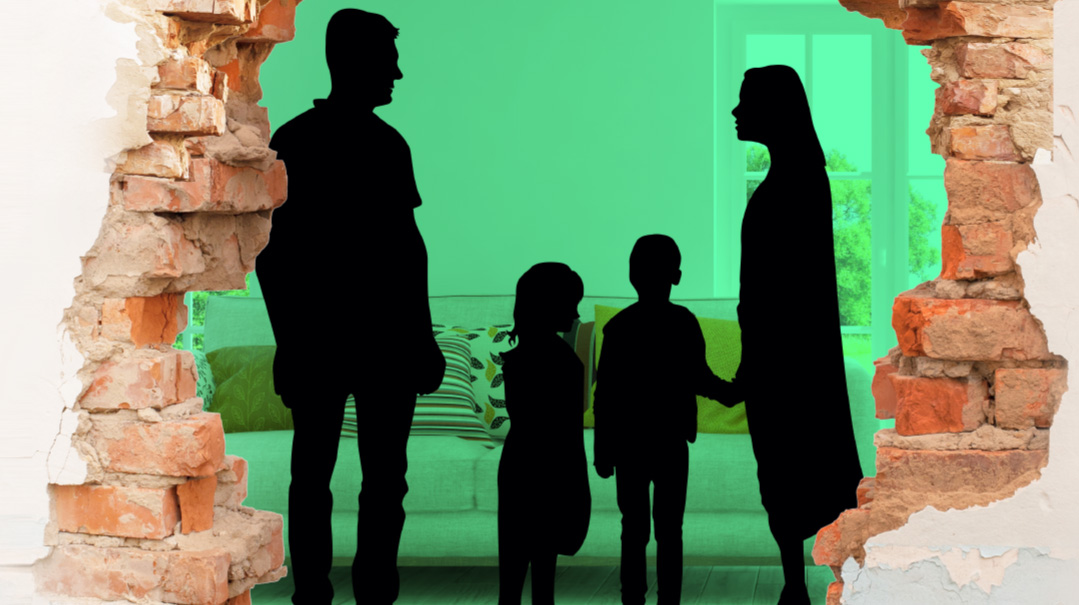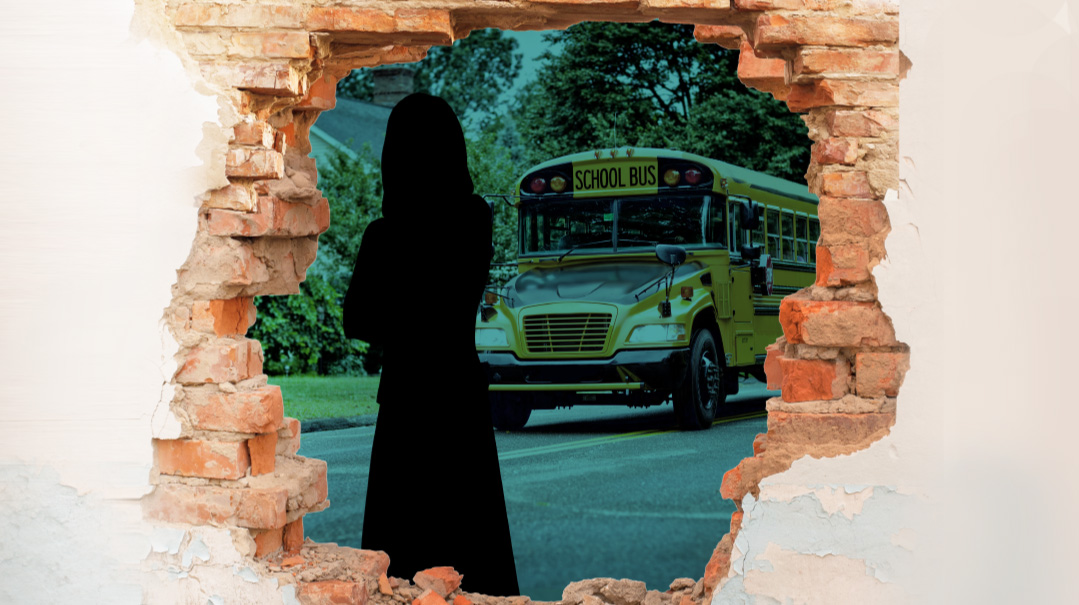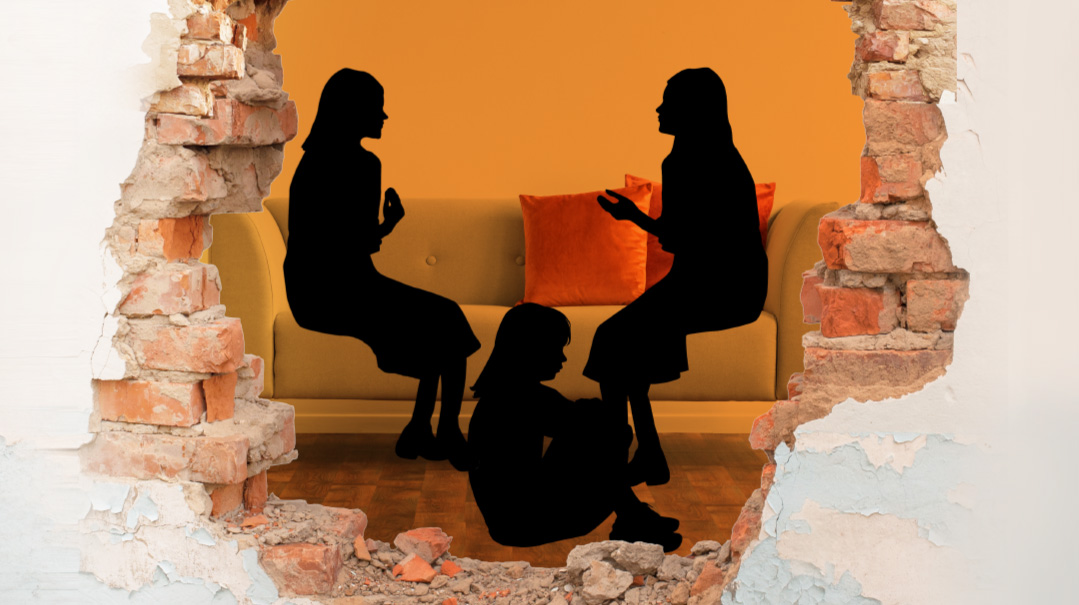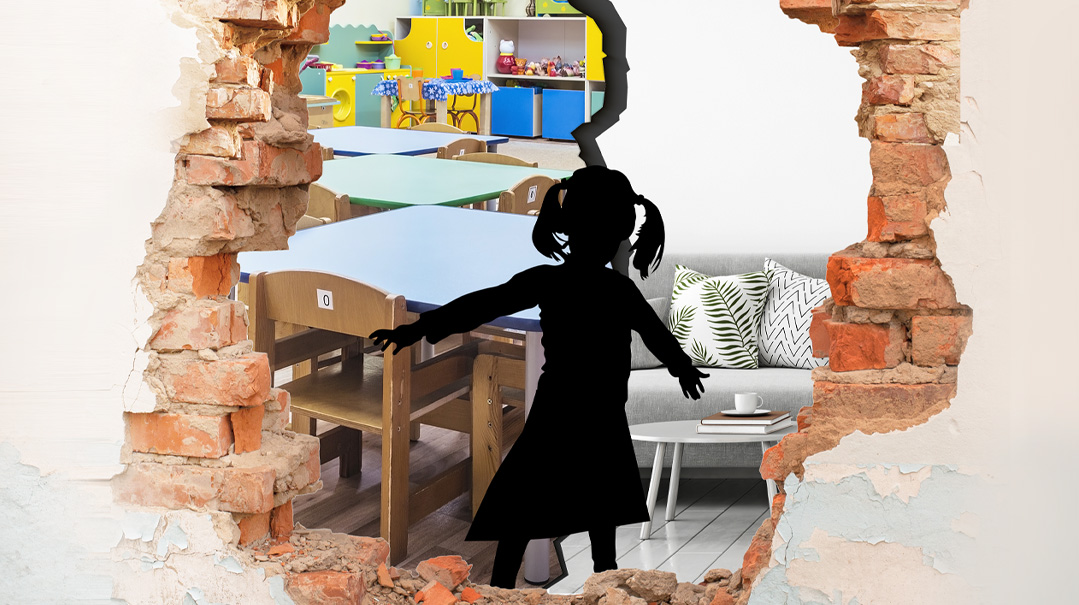My Aging Parents Want to Move But Still Need So Much Help

It may surprise you how much you can still serve them and be a part of their daily lives
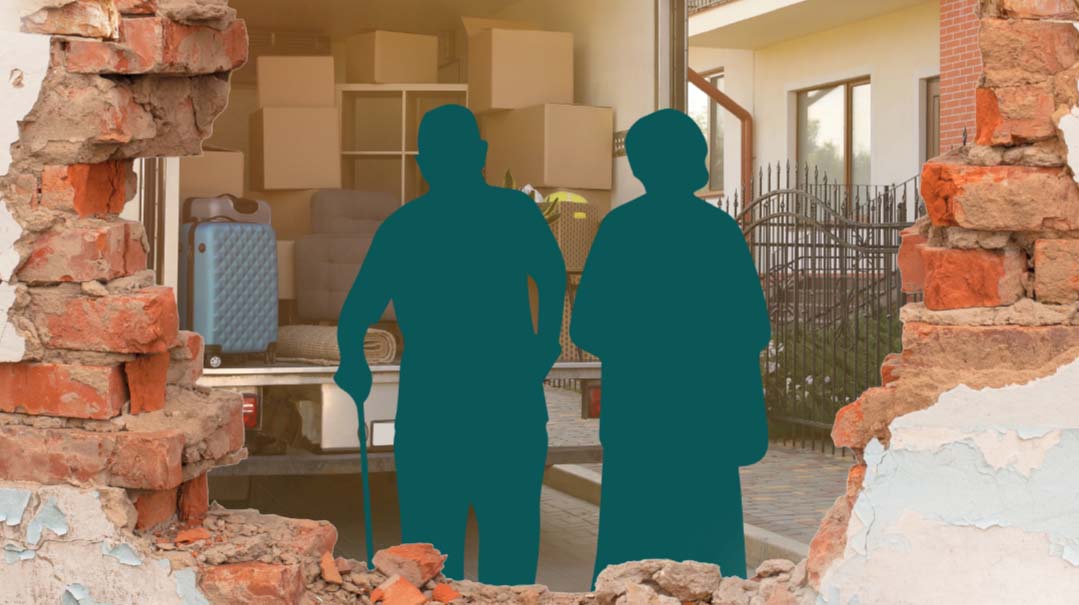
Moderated by Faigy Peritzman
My parents have lived close to us for 20 years, in what I thought was a win-win situation. The kids love having their grandparents hands-on, and my parents benefit from the help and support we offer them as they age.
Recently my parents sprung a surprise, telling us they plan to move out of town to somewhere more rural, saying they’re tired of city life. We were shocked. They even suggested we move with them, but that’s not possible given my kids’ schooling and my husband’s work and shul.
While they seem to accept our decision not to accompany them, they’re determined to make this move, and I’m anticipating there will be a slew of difficulties in store for them. I don’t think they realize how much their pace has slowed over the years or how many things we take care of for them — doing the grocery shopping, filling prescriptions, or just hanging curtains and pictures when Bubby wants to do a spring cleaning. They’re too self-reliant to hire cleaning help or an aide, but I think they’re in denial as to how much help they actually need.
I know if I make it clear I don’t want them to make this move, they won’t, but as their child, how can I respond that way towards my parents’ wishes? In general, what’s my role as a daughter when I see my parents make decisions that aren’t in their best interests or may even be harmful to them?
Rabbi Eliezer Ralbag is the Rav of the Lakewood Courtyard/Residence Shul, home to assisted and independent senior living.
Firstly, let me commend you for the beautiful closeness you’ve created over the past 20 years between your children and your parents. This relationship will remain whatever your parents’ decision will be.
As a preface to answering your question, the halachos of kibbud av v’eim, state (Kiddushin 32a, Yoreh Dei’ah 240,5) that when it comes to looking after one’s parents “mishel av” and not “mishel ben,” meaning one isn’t obligated to bear the monetary expense of doing so. Therfore, because of the financial impact moving would have on you, you aren’t obligated to move, too.
Having said that, your main concern is how do you go about convincing your parents to do something contrary to their wishes. This is especially of concern, as you feel this move isn’t to their benefit.
If you feel you must attempt to convince them to change their minds, you should keep in mind the words of the Sefer Charedim (perek 4, Mitzvos Hatluyos Bapeh): “One should speak to one’s parents pleasantly, in a soft-spoken manner, respectfully, as if to one’s master, as one would speak to a king.”
If your parents see your genuine concern and hear your opinion being conveyed with utmost respect, this in itself might be enough to make them reconsider.
If ultimately, they still want to make the move, you shouldn’t forcefully oppose their decision, but rather work to ensure their safety and well-being from a distance. It may surprise you how much you can still serve them and be a part of their daily lives, even when they’re living long distance.
Here are some practical ideas:
- Hire someone to stop by their home daily and help out with small errands. The visits themselves will be a bright note, in addition to the practical help they’ll provide.
- Arrange for a young man to come in daily as a chavrusa for your father, preferably someone who can simultaneously take care of whatever little errands/jobs around the house need to be done.
- Arrange for a local woman to take your mother out to lunch, and for a high school girl to help her with household tasks.
These arrangements will facilitate your parents’ adjustment tremendously.
Of course, maintaining your own daily personal phone calls can also alleviate a lot of your concerns regarding their day-to-day well-being. In addition, daily learning on the phone with your father, perhaps even for just a half hour, and consistent phone calls from the grandchildren can be of tremendous benefit to keeping ties strong.
In light of your good intentions to be careful about the mitzvah of kibbud av v’eim, you should merit to attain the brachah mentioned in Tannna d’vei Eliyahu (parshah 24): “Wealth and a long life in This World, in addition to endless life in the Next World, can be attained through doing Hashem and your parents’ will.”
Ciril Stern, LMSW, lives and works in New York, utilizing her experience as a mother, grandmother and great-grandmother to integrate Torah hashkafos and mesorah into her work.
The Gemara (Yerushalmi Peah, 1) tells us that a person’s will, his ratzon, is his honor, his kavod. When we take away a person’s ability to make his own decisions, to do his own will, we’re taking away his self-respect. If we want to respect someone, we need to honor his ratzon.
In your example, as your parents’ child, you want to honor them. But by stepping in and trying to wrest their ability to make their own decisions for them, you’re stripping them of their ratzon, and thus their self-respect.
Honoring our parents is obviously a paramount priority to all of us. As one of the Aseres Hadibros, we’re all aware of the importance of this mitzvah. It’s clear from your words that you take this responsibility seriously. You want to help your parents, you want to be there for them, you want their lives to be easy. Right now, you feel that their decision to move is threatening all these factors.
However, if you take a step back for a moment and look at this dilemma objectively, I wonder if you’ll notice how this quandary is being reflected from your point of view, not from your parents’. You like your parents living close by, you like the connection between your parents and your children, and you like to be able to honor them by helping them on a daily basis. That’s wonderful.
But at this juncture in their lives, as much as I’m sure they enjoyed the closeness of your family, they’ve decided to make this move. From their perspective, this move seems to meet their requirements for their future, and it’s their point of view that’s the primary one in this case.
Suppose a friend is sick in the hospital, lo aleinu, and you decide to visit her. When you get to her room, the nurse tells you, “I’m sorry, she just fell asleep, and she really needs her rest. You shouldn’t go in.” But you want to do a mitzvah! You want to make her day. Do you walk in and wake her up because you decide this is best for her?
Obviously not.
So too, although your parents are aging, from your words it seems clear that they still have all their capacities as far as decision-making goes. If so, it’s not your obligation to give your opinion or try to influence theirs. Not only is it not your obligation, it’s quite the opposite of honoring of them — it’s humiliating to them. If parents want help, they’ll request it. If parents want their children’s opinion, they’ll ask for it. If they don’t, it’s not your place to step in and offer it.
Imagine you’re at the pool with your teenaged daughter and your youngest, aged six. You stop to put sunscreen on the little one and your teenager rolls her eyes.
“The sun’s not even out, Ma, you don’t need to put on sunscreen.”
Then you caution your younger daughter, “Stay out of the deep end!” And again, your teenager says, “Ma, you gotta lighten up. This is supposed to be a fun outing, not full of rules.”
How would we react to this type of censure? Chances are, not too well.
Your parents deserve the same respect and space you want for yourself. They’ve done a super job of raising you (as obvious by your concern for them) and they seem to be capable people. If and when they want your opinion, they’ll ask for it. And until then, respect their ratzon.
I wish you much hatzlachah in continuing to serve your parents in the honorable way you seek to do.
Rona Gross is a licensed clinical social worker in Baltimore, MD, and is currently the program manager for Comprehensive Housing Assistance, Inc.’s Senior Home Repair & Benefits Program, which provides repairs and application assistance to keep seniors safe and independent in their own homes for as long as possible.
I read your letter several times and I must say, I’m impressed with the kind of daughter you are. Over these past 20 years, you really put in an effort to build a quality relationship between your parents and their grandchildren, and helped your parents with many tasks without compromising on their dignity. Kol hakavod!
Now you’re faced with a new dilemma, as your parents have shared their plan to move far from you and your family. You’re concerned that they’re in denial regarding their changing needs and decreasing energy levels.
My approach would be to make a time to sit down with your parents, uninterrupted, and share your concerns openly and honestly with them. It might be helpful to actually write down a list of what you anticipate the problems to be. You may simultaneously want to write down the factors influencing your parents’ decisions to move, such as a warmer winter climate. Having the pros and cons in front of you will allow everyone to see all points together.
There are some steps you can take if they maintain their wish to move, without completely nixing their plan. Perhaps they can rent a place in a more rural area or warmer climate to give them a taste of the slower-paced environment they’re craving, without making a full commitment by actually moving away. A pilot trip like this may also give them a chance to try out their idea and see if it would work to make a more permanent move.
You might also do some research to discover the services and programs available in the area they’re thinking about moving to. For seniors who are self-reliant, as you describe your parents to be, the “village model” of seniors helping seniors works well. Such a program allows individuals to give assistance where they can and to get assistance with what they need in a peer-to-peer exchange that may also include social activities and other services and benefits. Each village works differently, and you’d have to check if there is one in their area.
You could also seek out a Jewish Family Services eldercare consultant or a social worker who does care management for seniors who could meet with you as a family to discuss what assistance might be available in their new area. If your parents claim they don’t need professional input or assistance, suggest gently that they consider doing this for you, to allay your concerns for them, even if they themselves feel they can forge ahead on their own. Tell them you need to have some peace of mind that their evolving needs will be met if they move far from you.
If your parents still are resistant to these ideas, ask them what ideas they have for getting help with shopping, handyman services, and the like if they’ll be living far away.
Soliciting help from someone your parents trust (a rav, for example) might also help so they can hear your concerns from another source.
I do believe that these steps can bring your vision and that of your parents closer together. However, if you still feel resistance to your parents’ move, and they are still insistent, I’m not in favor of you pressuring them to stay. That should be reserved only for a time when there is a real concern for physical safety. Your parents are competent adults and need to be able to maintain their independence as much as possible. This is part of healthy aging and a healthy relationship with an adult child.
As long as you’ve openly expressed your concerns and shared alternative options, obtained help from professionals, if needed, and framed your worries in terms of your love and care for them, you’ll have done your hishtadlus. The result of your efforts is in Hashem’s hands.
Hatzlachah!
(Originally featured in Family First, Issue 766)
Oops! We could not locate your form.







